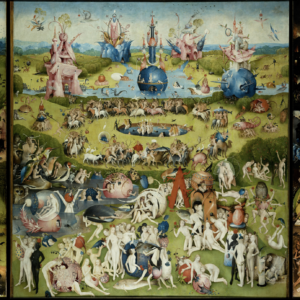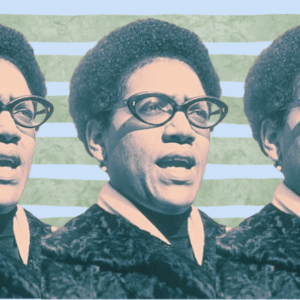
How Professional Readers Read for Pleasure
A Brief Survey of How the Pros Slow Down
A few weeks ago, I picked up Jane Austen’s Persuasion for the first time. It had been quite a while since I had been able to read a book purely for pleasure. As anyone who reads constantly for work knows, the “joy of reading” can quickly become a chore. As Austen’s brilliant, detailed style had me lingering on the text, my subway commute flew by. I wondered if other professional readers had experienced this “burn out” feeling, and what they do to counteract it.
As it turns out, of course, I am not alone.
“I find it very difficult to read for pleasure because of the obligation to turn the reading into something else. When I’m reading professionally I go very slowly, and stop to make notes about language and form and all sorts of issues,” Lauren Elkin, a Paris-based writer and academic, told me. Indeed it can be difficult to completely disconnect from our professional habits. Matt Sailor, a recipient of a NEA fellowship for creative writing, said, “I’ve come to accept that years of writing and publishing and graduate study have changed the way I read. Mostly for the better, but sometimes it’s difficult to get lost in something the way I used to.”
I spoke to other professional readers about the strategies they’ve employed to enjoy pleasure reading again—the same way we did as kids, with flashlights under the covers, before work got in the way.
BURN OUT
“When I am too burned out to even think and just want to look at pictures for a while, I savor coffee table books devoted to say, Irish country houses. Luggala Days: The Story of a Guinness House is a favorite in that regard. I also recently enjoyed Marella Agnelli: The Last Swan and I also like to revisit her Sotheby’s auction catalogue, which I long ago ordered online.”
–Lauren Cerand, book publicist (and nightlife correspondent for this website)
“Over the past few years, I’ve increasingly turned to television to relax. However just this summer I made a concerted effort to return to reading for its own sake, so I’ve chosen books that are radically outside my research fields so I don’t have to feel bad about not professionally engaging with them.”
–Lauren Elkin
“For me, the biggest issue is carving out time to sit and read not only from my day job, but from my role as a new(ish) mom. Sometimes I succumb to the exhaustion of parenthood/full-time worker, and just curl up with a good Netflix show while my son is napping. This may sound crazy, but I have to literally make a calendar invite for myself to read for an hour.”
–Megan Gilbert, Content Director, Gawker Media
GENRE BLINDNESS
“I read the new Lee Child book that comes out every September as a palate cleanser. I love what he does; he’s a master of his genre and I know I’m going to get a great read every time. For me, good is good and it doesn’t matter what style or genre it comes packaged in.”
–Anonymous Editor, Literary Imprint
“Part of my solution is to try to read well outside of my experiences and capabilities, so I don’t have the urge to directly compare my own work to what I’m reading. Poetry, work in translation, history, novels with a genre bent, novels written by people who come from wildly different backgrounds than me.”
–Matt Sailor
WHEN IN DOUBT, JANE EYRE, OR WOOLF
“A few books I turn to as palate cleansers: To the Lighthouse, Raise High the Roofbeam Carpenters, Independent People, Middlemarch, Jane Eyre.”
–Rebecca Dinerstein, author of The Sunlight Night
“I often re-read books too. Every year I reread Jane Eyre; I just open up to any page and start.”
–Anonymous Editor
“I’ll just go back to Moby-Dick or Mrs. Dalloway for the millionth time. That always reminds me of what I love about reading.”
–Matt Sailor
ALSO, POETRY!
“The purest example of reading for its own sake, I think, is poetry, which I have never wanted to write about professionally because for me, trying to talk about what it does seems to take more from the primary text than it adds. I’m going to be teaching Anne Carson this fall and I’m a little nervous about it. I hope I can help my students see why I think she’s so amazing. It’s going to be a real challenge to put to work something I normally read purely for pleasure.”
–Lauren Elkin
“Louise Glück’s poems.”
–Rebecca Dinerstein
“In a pinch, I re-read poetry by Elizabeth Bishop, Frank O’Hara, Anne Sexton.”
–Megan Gilbert
NOTHING FOR WORK, EXCEPT . . . FERRANTE
“When I choose to take on a book that isn’t necessarily for work or research, I have to fall in love with it pretty fiercely in a way that I will carve out additional time to read because I can’t resist. It just happened with the Neapolitan Novels; I just read all four of them straight in a row, mostly for pleasure, and I couldn’t stop, so I made the time.”
–Meredith Turits, Bustle Senior Culture Editor and freelance writer
“Every now and then I find I get to write about something like Ferrante’s Neapolitan novels (which I’m reviewing for The Daily Beast) but I read them so greedily and quickly I have to remind myself I’m supposed to be crafting some kind of narrative on top of or adjacent to hers and I think oh dear, I’m going to have to go back later to do a more diligent reading . . .”
–Lauren Elkin
SUBWAY READING
“I read on the subway, and only read for pleasure then. It might only be 30 minutes at a time, so I like something I can dip into and return to without feeling consumed. Scholarly works in particular are great for that. This week, it’s Sex and Film.”
–Lauren Cerand
“I read for pleasure on the subway, and before bed. Time off means extra reading time!”
–Rebecca Dinerstein
Jessica Ferri
Jessica Ferri's writing has appeared in The New Yorker's Book Bench, The Economist, The Daily Beast, NPR, Bookforum.com, Bookslut, The Barnes and Noble Review, The Millions, and The Awl.



















